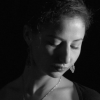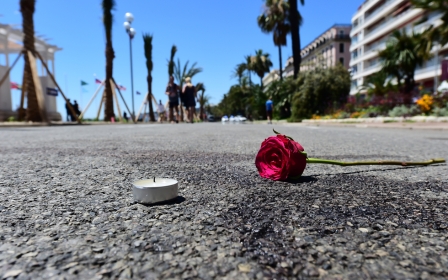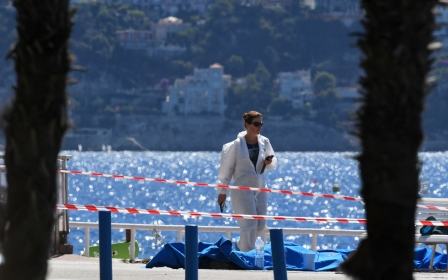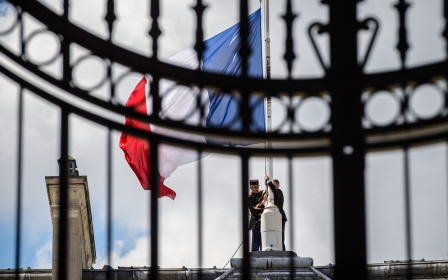After Nice: Fears of France breaking apart and Le Pen in the palace
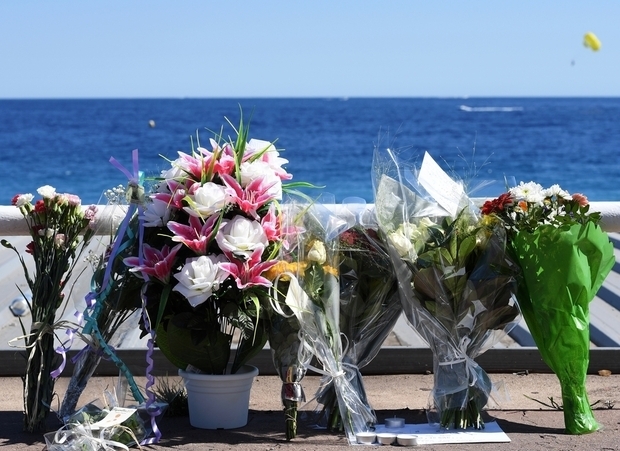
“Is your mother alright?” A friend from Syria asked by text message early on Friday morning. “Yes, she is! Why are you asking?” I quickly replied.
The first thing I did next was to check social media. I knew something had happened, and that I was going to find comments faster than any news coverage.
I was right. A few friends had already changed their profile picture to a drawing of the Promenade des Anglais in Nice, ghosted in the colours of the French flag.
They were already in mourning.
Luckily, however, my Syrian friend had made a mistake: My mother lives in Nancy, not in Nice.
Everyone had thought that the next strike would be Paris, again. But no, it seems violence is spreading throughout the whole of France.
I now began watching the television for news, on every single channel. I needed the full story, and on social media, I’m only given access to titbits of information.
A truck attack. The Promenade des Anglais . So far, 70 people were killed. A few hours later, this rose to 84.
On a moral code in journalism
But a scan of the TV channels also reveals confusion. All the TV channels are broadcasting live, and all want to be the first to have the latest news.
Hostages are allegedly being held, according to the news anchor on LCI, 24-hour news channel.
But actually there were no hostages, this was only a rumour that had started to spread.
France 2 made another mistake, broadcasting an amateur video of the truck going into the crowd gathered on the Promenade des Anglais walkway. In slow-motion apparently. I did not see it and I am sure others felt the same.
I try to resist but now imagination takes over, it is beyond my control. Imagination is powerful, I see the horror.
I was not physically there when it happened but my whole body is tense as if I was. I am watching the blurred testimonials on France 2, of people who were there during the attack, of people who are being interviewed next to the dead body of their relatives. They survived. They talk, they can talk. They must not be fully aware of what had just happened.
“France 2 did not blur the faces of the witnesses it interviewed and we could see they had a North-African background. This shows that terrorism makes no differentiations”, emphasised a friend of mine of Algerian descent, who was watching the news from Canada.
Why did France 2 interview them there though? Next to the corpses, and in shock? It seems like journalism has lost its moral compass. People are taking offence on social media. France 2 went too far.
Methods used by 24-hours news channels are being questioned. It is true that the more you watch, the more traumatised you will become. But you can’t help it. Once the TV is on, it’s hard to switch it off.
As I wait for the latest news. The same images and same testimonials are on a loop - on TV and in my head.
“That can be dangerous”, said Marianne Kedia, psychologist and trauma specialist, in an interview she gave to Télérama magazine, following the Brussels attacks. “It creates anxiety for a lot of people. Psychosomatic stress, a deep feeling of discomfort.”
That discomfort, I did feel it. I couldn’t concentrate. I switched off the TV. I tried to pull myself together. I tried to find some elements for analysis. I’d rather read than look at images that prevent me from thinking straight.
Comments, comments, comments
I go back on social media. The Elysée presidential palace official account has just published a new press release: “We are going to intensify our strikes in Iraq and Syria. We are going to keep striking the ones who are threatening us.”
They announced this, even though at that hour, the Islamic State (IS) hadn’t yet claimed the attack. It is true that the modus operandi is very like IS, however nothing has been confirmed yet.
Plus, the attacker has not yet been identified. A French-Tunisian man, they have said. Yes, French-Tunisian, but very quickly for many he became Tunisian only.
He is no longer one of us, he is theirs, the result of their society. The debate about the forfeiture of nationality suddenly comes back.
This quickly gets the ambassador of Tunisia offended. If he is French from a Tunisian background it means that he is French first. It turned out that he was actually Tunisian and had a residence permit in France. But the tone had been set: it is always foreigners or people that are being assimilated as foreigners. Not a 100 percent French.
Someone I know contacts me. He lives in Nice. He dared to comment on one of his Facebook friend’s wall, who had said that Islam and terrorism were the same, and was cursed at.
In private messages, a friend even threatens him. He could be suspected him of having Islamist tendencies, be reported - lose his job.
Others receive similar messages.
“It’s already tense, but it’s getting worse now… I’m afraid our society is going to break”, says one of them. “We are screwed, it’s a series now. It’s the third attack. Le Pen is going to win”. 2017 will confirm it or not.
“A broken society can be fixed. In Japan, they have this art called Kintsugi. They fix broken pieces of pottery with gold,” shares a friend. We need to find what this "gold" we need to use is. Words can be gold I guess. Good words, not sweeping comments.
Trying to think about what happened
A gathering is planned on the same evening. It will still be held. No one can stay home. People need to talk things out, they need to share as much as they can. It is easier in smaller groups. In public, freedom of speech seems to get less and less free. People are afraid, afraid to criticise this republican defensive identity reaction that seems to emerge every single time the horror strikes.
“One day, to fight terrorism, we will be given little Eiffel tower statues, little Marianne statues, French flags and code of secularism. The perfect French citizen kit”, says someone ironically.
“It might not be enough. Can’t you come up with something better?”
“Probably we will have to withdraw our troops in Syria and Iraq. Francois Hollande is not taking risks with his decision, since the latest poll indicated that 84% of French people were supporting France's military actions in Syria… but let’s be honest, will new military strikes reduce the risk of attacks in France?”
“Not really. The State of Emergency did not prevent this attack from happening, did it? Attacks have been thwarted, true, however when those people really want to kill, they become very creative…”
“So, what do you need to be allowed to rent a truck. The guy was a delivery driver. We were far from thinking of a truck as a weapon. We need to think beyond the weapon itself, we need to understand the attacker’s motives, what led him to do such a thing.”
“It has been said that he was an unstable man... so basically he’s a psycho.”
“Well, maybe it is true, but that’s so convenient. By thinking that we don’t question ourselves.”
Sometimes our conversations do not even make sense, but at least they help us to put words to what we are going through and help us to come out of this confusion - we still ask ourselves: Why did it happen in France? Why did it happen AGAIN in France?
“I told you before, it’s because France is military involved in those hot places. France has become a legit target for jihadists.”
“Personally I think this has nothing to do with that. The ones who committed those actions here had no connection whatsoever with people over there. They don’t even know those countries history, they don’t speak the language. I don’t understand what they would fight for them for.”
“Because they feel closer to them. They relate to their history, their language, even if they can’t speak it.”
“I can tell you’re about to bring out again the colonial reason. Come on, it’s in the past now.”
“No it’s not! There is still resentment, whether you like it or not. Everyday this resentment is fuelled by racist action, speech, and behaviour. The day everybody will be aware of that and accept it, maybe that heavy atmosphere will finally clear up…”
“So, basically if I follow your reasoning, French people with Vietnamese background should then turn against France”
“No, you’re not following here. Not only the war in Vietnam is over but no one is continuously pointing the finger at them.”
“I think our common ground here is the fact that jihadists do come from various backgrounds…They are not all social outcasts… They are especially seduced by an ideology that gives them sense, power and acknowledgement, that they cannot find here… And no doubt, they are all fragile in a way, something that the IS has been able to exploit and use it at its advantage to fight… ‘The former colonial power’”
Then what, what’s next? “Well, I guess we’ll have to accept the fact that we need to debate really openly, especially about sensitive topics so we might avoid new attacks from jihadists…”
Thinking about peace before thinking about going to war. Think about the history of France, “how France is integrated into the world and how it’s integrated the world in its territory”, says Achille Mbembe, philosopher and postcolonial theorist.
We must get rid of this racialised and exclusionary ideal and aim for a real cosmopolitan democracy, where each individual would feel comfortable. So that they would not be tempted to come out of it nor to destroy it.
- Dorothée Myriam Kellou is a journalist and film maker based in Paris. She has a master in Arab studies from Georgetown University, Washington D.C., and a master in International relations with a major on the Arab world from Sciences-Po Lyon, France. She contributes regularly to France 24 website “Les Observateurs”.
The views expressed in this article belong to the author and do not necessarily reflect the editorial policy of Middle East Eye.
Photo: Flowers on the Promenade des Anglais walkway in Nice to commemorate the lives taken during the July 14th attack (AFP).
This story originally ran on MEE's French website and was translated by Nassima Demiche.
Middle East Eye propose une couverture et une analyse indépendantes et incomparables du Moyen-Orient, de l’Afrique du Nord et d’autres régions du monde. Pour en savoir plus sur la reprise de ce contenu et les frais qui s’appliquent, veuillez remplir ce formulaire [en anglais]. Pour en savoir plus sur MEE, cliquez ici [en anglais].


